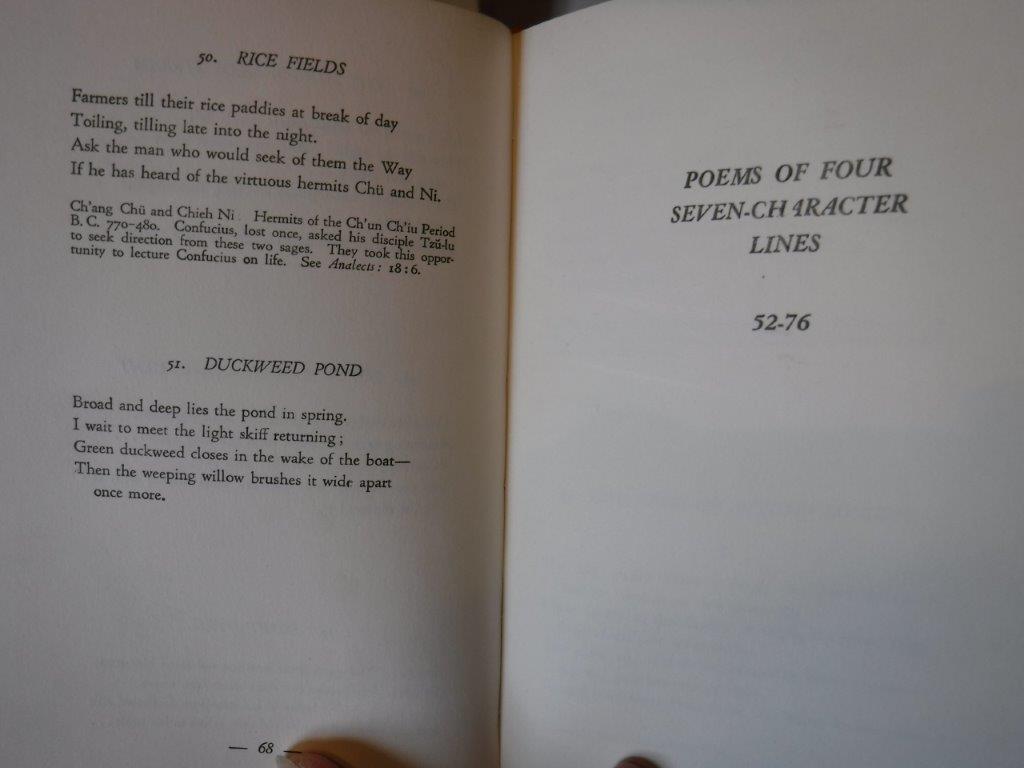

Written at Imperial Command to Harmonize with His Majesty’s Poem, “With the Crown Prince and Other Lords on the Third Day of the Third Month at Dragon Pond for the Spring Lustration Festival” Written at Imperial Command to Harmonize with His Majesty’s Poem, “At the End of Spring, Bidding Farewell to the Assembled Court Emissaries on Their Return to Their Commanderies” Written at Imperial Command to Harmonize with His Majesty’s Spring-Detaining Poem, “Spring View in the Rain,” on the Arcade from Penglai Hall to Xingqing Palace Harmonizing with the Poem of the Duke of Jin Vice-President of the Department of State, “Following the Imperial Retinue to the Warm Springs” Written at the Prince’s Command on the Emperor’s Having Lent the Jiucheng Palace to the Prince of Qi as a Retreat from Summer Heat Harmonizing with Secretary Jia Zhi’s Poem, “Morning Audience at Darning Palace”

Sacrificial Songs to the Goddess of Fish Mountain On the Theme, “Pure as the Ice in the Jade Vase” On the Ninth Day of the Ninth Month, Remembering My Brothers East of the Mountains An Inscription for a Friend’s Mica Screen Chapter Two: Juvenilia and Other Literary Exercises.Punctuated Chinese texts for all translations and a character glossary of key terms and names appear in appendixes-both of these features are unique among translations of Wang Wei's work. The individual poems, however, are allowed to speak for themselves and are accompanied only by notes and commentary explaining historical and literary allusions.

Pauline Yu's exegeses opening each chapter of poetry suggest some interpretive guidelines.

An extensive introductory chapter discusses Taoist and "metaphysical" traditions in Chinese literature as well as Western Symbolist, post-Symbolist, and phenomenological theories as they pertain to the poetry of Wang Wei. She corrects previous translators' prejudices for the nature poetry of Wang Wei by including generous samplings of the poet's juvenilia, court poetry, and Buddhist verse. Pauline Yu has translated and annotated 150 of his poems, the most representative selection of Wang Wei in English to date. Although his poetry has been translated in the West, Wang Wei has not received a great deal of critical attention because of the elusive quality of his work. A central figure during the peak of Tang dynasty literary activity, the poet Wang Wei (701-761) combined a subtle, deceptively simple imagery with a profound philosophical interpretation of the world based on integration and harmony.


 0 kommentar(er)
0 kommentar(er)
